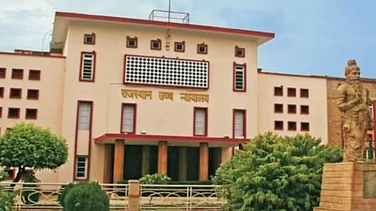
The dominance of MCQ-based exams has transformed learning into a race of memorisation and speed.
Standardised testing undervalues deep research, creativity, and intellectual specialisation.
True education must balance employability with critical thinking, reflection, and democratic engagement.
The landscape of education in India has undergone a fundamental transformation. Gone are the days when educators were primarily advised to cultivate critical thinking, nurture analytical capacities, and inspire intellectual curiosity among students. The dominant imperative today is no longer to understand but to qualify. The increasing prevalence of multiple-choice question (MCQ)-based examinations at almost every level, from undergraduate admissions to faculty recruitment, has redefined what it means to be educated in contemporary India.
As educators, we are compelled to acknowledge this shift. Students today inhabit an environment where learning is evaluated not through comprehension or interpretation but through memorisation and speed. This pedagogical reality demands that teachers rethink their methods: lectures must be designed not only to engage students intellectually but also to help them remember and apply information effectively during standardised tests. Regular MCQ-based assessments, mock tests, and question drills may, therefore, seem necessary to equip students with the tactical skills required to survive and succeed in this competitive order.
However, while such pragmatic adaptations might appear necessary, they raise a deeper set of concerns about the direction in which our education system is heading. The dominance of MCQ-based testing has reduced learning to a mechanical process of information retrieval. It privileges rote memorisation over reasoning, factual recall over reflective understanding, and standardisation over creativity. In this process, education risks losing its emancipatory essence—the ability to question, critique, and imagine beyond the given.
The consequences of this shift are particularly visible in higher education. Consider the case of PhD scholars who spend five to six years studying a single topic, engaging deeply with theoretical frameworks, archival sources, and fieldwork. Yet, when it comes to qualifying for teaching or research positions, they are required to clear MCQ-based examinations that often test superficial recall rather than substantive knowledge. How can a scholar whose expertise lies in a highly specialised area be expected to compete in a test that values breadth over depth? This contradiction lies at the heart of the current crisis in academia.
If a person who has devoted years to rigorous inquiry is unable to qualify for a standardised test designed for generalists, the problem does not lie with the scholar but with the system that refuses to recognise intellectual specialisation. This paradox also exposes a broader malaise—the growing unemployment among the highly educated. Thousands of doctorates remain jobless not because they lack knowledge or ability, but because the evaluation mechanisms fail to appreciate the very nature of research-oriented learning. The state’s increasing reliance on standardised testing as a gatekeeping tool for employment and academic recruitment has turned higher education into a frustrating exercise in diminishing returns.
These developments have profound implications. When education becomes synonymous with qualification, the university is reduced to an assembly line producing exam-ready candidates rather than thoughtful citizens. The classroom, once a space for critical dialogue and questioning, risks becoming a site of mere preparation for tests. The teacher, in turn, is transformed from an intellectual guide into a trainer of examination techniques. This erosion of academic purpose must concern all of us who see education as a public good rather than a private competition.
The way forward requires balance and introspection. While it is true that educators must adapt to changing realities and help students navigate the demands of competitive exams, we must also resist the total colonisation of learning by the logic of testing. Pedagogy should empower students to think, not just to recall; to analyse, not just to answer. We must strive to produce learners who are capable of both qualifying examinations and questioning the world that creates them.
Ultimately, the purpose of education cannot be confined to employability or examination success alone. It must continue to serve as a means of self-cultivation, critical engagement, and democratic participation. Until we restore this balance between qualification and comprehension, between competition and creativity, both our students and our educational institutions will remain trapped in a system that rewards memory but punishes meaning.
(views expressed are personal)
Dr. Waseem Ahmad Bhat is an educator who teaches at Akal University, Talwandi Sabo, Punjab. He can be reached at waseembhat94@gmail.com.

























